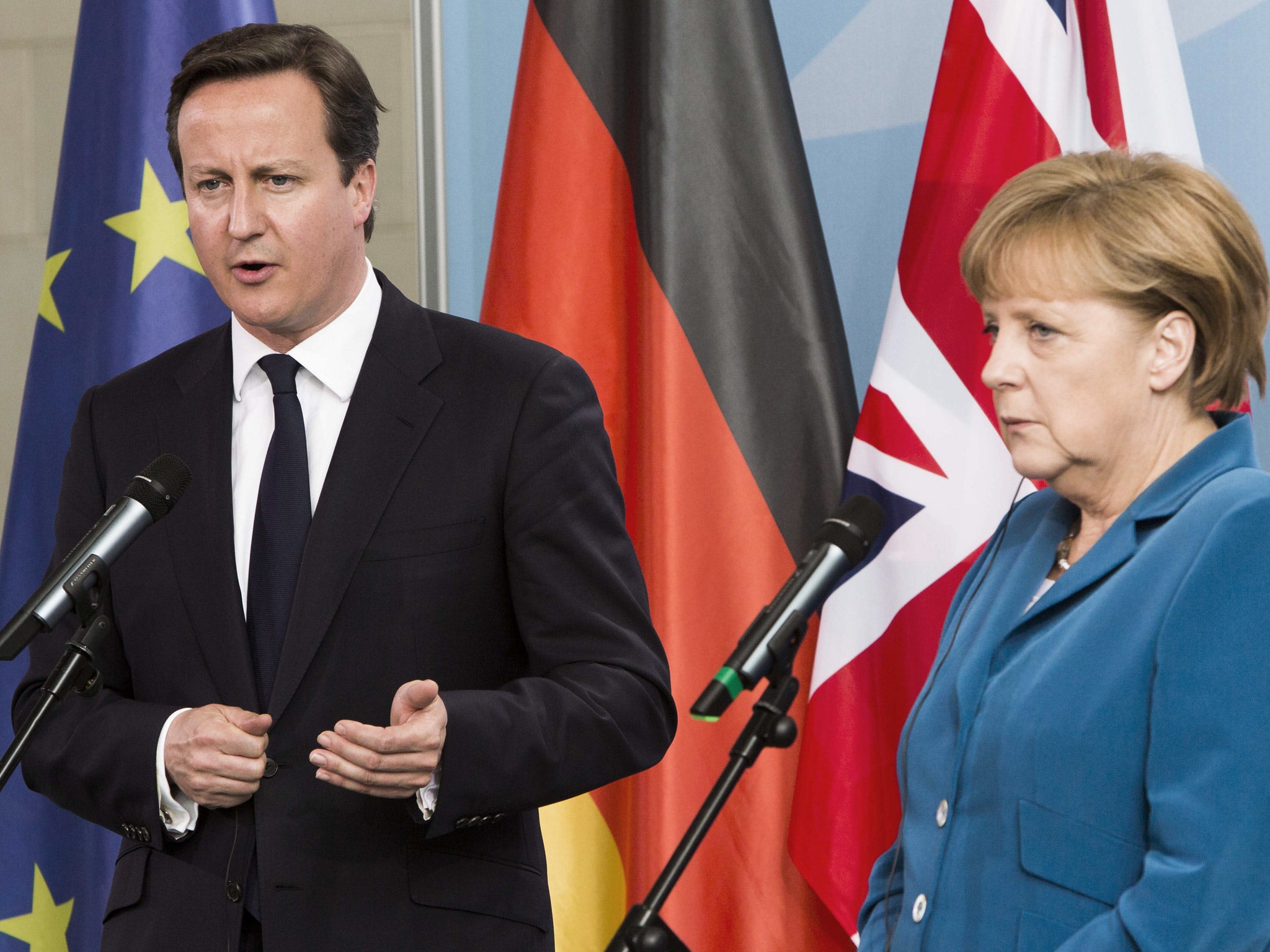Commissioners set to slash UK's EU rebate by €1 billion
The Prime Minister is under mounting pressure to allow a cut in the value of the rebate won by Margaret Thatcher in 1984

Your support helps us to tell the story
From reproductive rights to climate change to Big Tech, The Independent is on the ground when the story is developing. Whether it's investigating the financials of Elon Musk's pro-Trump PAC or producing our latest documentary, 'The A Word', which shines a light on the American women fighting for reproductive rights, we know how important it is to parse out the facts from the messaging.
At such a critical moment in US history, we need reporters on the ground. Your donation allows us to keep sending journalists to speak to both sides of the story.
The Independent is trusted by Americans across the entire political spectrum. And unlike many other quality news outlets, we choose not to lock Americans out of our reporting and analysis with paywalls. We believe quality journalism should be available to everyone, paid for by those who can afford it.
Your support makes all the difference.David Cameron will tomorrow go into battle against proposals to cut €1billion (£805m) off Britain’s annual rebate on its contributions to the European Union.
The Prime Minister, already at odds with many of his European counterparts over his demand for a freeze in the EU’s budget for 2014-20, is now under mounting pressure to allow a cut in the value of the rebate won by Margaret Thatcher in 1984.
The Independent has learned that the latest budget proposal circulating in Brussels would reduce the value of the UK rebate from Euros 3.6bn (£2.9bn) to about Euros 2.6bn (£2.1bn). It has been drawn up by Herman Van Rompuy, President of the European Council – the 27 leaders including Mr Cameron who will hold a special budget summit tomorrow (thurs) and Friday. France and Germany are among the countries who will argue that the British rebate, conceded when the UK was among the poorest EU nations, is no longer justified.
Mr Cameron has the power to veto the demand to cut the rebate and allies believe he will do so. If he allowed it to be reduced, he would anger many Tory MPs, and risk unflattering comparisons with their heroine Baroness Thatcher. The rebate reduced Britain’s contribution from Euros 10.9bn (£8.8bn) to Euros 7.3bn last year (£5.9bn).
The Prime Minister’s desire to protect the rebate will put him under more pressure to concede a real terms increase in EU spending. Figures circulating in Brussels suggest his proposed freeze would cap the budget at about Euros 886bn (£713bn) over the seven-year period, while Germany and other nations want the ceiling to be around Euros 950bn (£764bn).
Other countries are making it clear they will not allow Mr Cameron to claim victory on the rebate unless he gives ground on the EU’s spending limit. But Downing Street made clear last night he would stick to his guns on both issues. A Government spokesman said: “We are looking to get the best deal for the UK taxpayer. That means holding down the total level of spending and protecting the UK’s rebate.”
Although other EU members have their own demands, Britain is seen in Brussels as the main stumbling block to a deal. EU diplomats insisted a deal can be done if Mr Cameron is prepared to compromise a little. British sources described Mr Van Rompuy’s latest plan as a “move in the right direction” but said there were still “issues” with the budget ceiling and the UK rebate.
At the summit, Mr Cameron will argue that Britain’s payments into EU coffers have risen because Tony Blair allowed the rebate’s value to be reduced in the last seven-year spending review.
To avoid a total failure at the summit, Mr Van Rompuy may seek an agreement among the 26 other nations. That would put Mr Cameron under pressure to make concessions when talks resumed next year.
Join our commenting forum
Join thought-provoking conversations, follow other Independent readers and see their replies
Comments